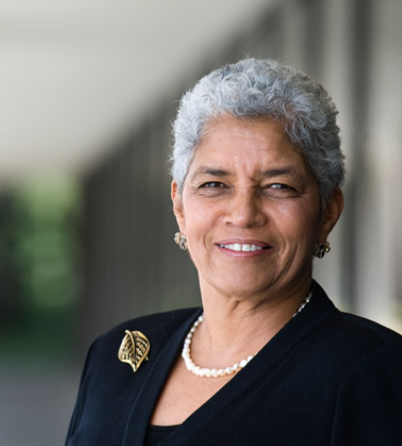In the fifth installment of her column, Big Mother Is Watching You, a guide to prominent anti-sex worker activists and officials, Robin D. outlines the major figures promoting the End Demand/Swedish Model phenomenon in the United States.
When the Sex Purchase Ban passed in Sweden in 1999, prostitution was legal there. Proponents of the Swedish Model in the U.S. talk about “decriminalizing the women,” but implementing this model has never involved the removal of criminal laws against anyone. It’s mostly all talk. Several U.S. jurisdictions (Illinois, Colorado, Atlanta, Boston, Chicago/Cook County) have had laws branded “End Demand” pass. In none of these cases was any effort made to remove criminal penalties for sex workers.
Here are some of the key players involved in bringing the Swedish model to the United States:
Rachel Durchslag, Chicago Alliance Against Sexual Exploitation, Hunt Alternatives Report Fund Author

“I saw a film about human trafficking, and I was haunted. Then I found Chicago was a major hub for human trafficking. Once I realized my own city was not stepping up, I felt called to do something,” says Rachel Durchslag, Chicago Alliance Against Sexual Exploitation (C.A.A.S.E.) founder and Sara Lee heiress. But this tourist in human suffering couldn’t take it for long, and she didn’t have to. In 2013, she left her human trafficking work to practice Reiki.
Since her youth, Durchslag grappled with poor-little-rich-girl syndrome in isolation until, at a retreat for “young funders” (read: people with inherited wealth), she found peer support. “After I said my great-grandfather started Sara Lee, I felt this lightness that I don’t think I’ve really ever felt before then. That was the first time I had ever publicly said that, and all of a sudden it clicked, I didn’t do anything wrong to be born into this family, there’s nothing productive about me feeling continually guilty about being born into this family, but there is a lot that I can do,” she explained to 136 Radio. What she did was use her trust fund to start the Chicago Alliance Against Sexual Exploitation, a key player in the passage of an End Demand ordinance in Cook County in 2008. They have since done some good work in making progressive criminal justice reforms including the repeal of felony prostitution in Illinois, but they are unwavering in their continued support for the criminalization of sex work clients.
Durchslag has written for the Huffington Post about reading client forums. Like the Invisible Men Project does, Durchslag appropriates the suffering of victims of violence to justify policies that clearly make sex workers’ problems worse. She does so in a very prurient manner, both in the article above discussing a 2013 C.A.A.S.E. report she co-wrote on client forums and in the report itself, in which she stoops to quoting rape perpetrators describing their crimes on review boards, without regard for the wishes of the subjects of those reviews. This disturbing voyeurism is interspersed with discussions of relatively neutral topics, such as determining what’s on offer at spas advertising erotic massage. If workers weren’t getting arrested, go figure, maybe they could tell Durschlag what services they provide directly.
Durchslag also seemed to love to give other people like her access to her tourism of the sex industry. She invited colleagues and friends to participate in the publicity around a “human trafficking play” with the dehumanizing title Roadkill.
Tom Dart, Cook County Sheriff

“When I first became Sheriff it was abundantly clear to me that just arresting people who are prostituting themselves made no sense on multiple levels. It made no sense from a law enforcement side and it made no sense from a human side,” says Cook County Sheriff Tom Dart.
Yet, his office still arrests an almost equal number of sex workers and clients. Referring to two specific client arrests, he announced, “they are Exhibits A and B for an evolving national movement to hold sex solicitors accountable for their roles in perpetuating a vicious and oppressive industry.” These are interesting words for someone whose office still arrests sex workers en masse. He charges the two groups differently, with clients able to get by with a county ordinance violation and a fine, while sex workers are charged with misdemeanors.
Over the past four years, fines collected from such county ordinance violations have netted $208,000 for Cook County.
“Few issues have fostered more failed policies than our society’s approach to prostitution, which has long been to stigmatize the women and girls—arresting, prosecuting and incarcerating them until they die in the streets,” writes Dart without apparent irony, while his office continues to enact those very same policies.
Tom Dart likes big gestures. He coordinates an approximately twice-yearly national sting called “Buyer Beware,” in alliance with multiple jurisdictions across eleven states. Those arrested in this sweep in the winter of 2012 were 98% non-white. 82% of the arrestees had received only a high school diploma or completed GED courses, or had even less education.
Though he is a Sheriff and not a States’ Attorney, Dart is famous for his suit against Craigslist. As Tits and Sass readers know, he also crusades against Backpage, because he prefers his arrestees working on the street: “From a law enforcement standpoint, when you try to get at the bad guys, the pimps and traffickers having to expose themselves on the street, it’s a lot easier to catch them,” Dart told the Indiana Daily Student.
Tom Dart’s war against Backpage achieved a victory last year when he successfully lobbied a couple of major credit card companies to stop doing business through Backpage’s adult listings. The Seventh Circuit Court, however, instructed him to back down later in 2015. His tactics called to mind those of the U.S. Department of Justice’s disturbingly-named “Operation Chokepoint”, which involved the seizure of the sex workers’ personal bank accounts, including those of legal workers such as porn stars.
“An overwhelming number of ‘working girls’ are victims of broken child welfare systems or have experienced some sort of serious trauma, including rape, molestation, and domestic violence. Over 2/3 were forced onto the streets before the age of 16, with pimps and traffickers beating into them—in both a physical and verbal sense—the notion that their bodies are their only measures of self-worth,” Dart writes, affecting care for marginalized people. But it’s hard to take Dart seriously as any kind of advocate for criminalized people. A federal DOJ report detailed the abuses at Cook County Jail in 2007 (Dart took office in late 2006), including poor supervision and mistreatment of inmates, unsatisfactory health care, and environmental hazards in the facility, including the presence of weapons.
Under Tom Dart’s watch, Cook County Jail cavity-searched lines of shoulder-to-shoulder naked men, exposing inmates to other people’s blood and vomit, and subjected incarcerated women to arbitrary vaginal examinations. This was not considered misconduct, it was a routine practice that affected hundreds of thousands of men and women. Most were in jail awaiting trial for minor crimes like driving violations or prostitution. In 2009, 250,000 former inmates sued Cook County. In 2010, they were awarded $55 million. Another lawsuit from February of 2014, alleging brutality at the jail, was rejected on the grounds that Dart had made improvements to the system.
Dart responded to the suits by attempting to discredit the complainants: “The report often relies on inflammatory language and draws conclusions based on anecdotes and hearsay from inmates,” he stated, adding that the “allegations of systematic violations of civil rights at the jail are categorically rejected by the sheriff’s office.”
Beth Klein, Esq.

Beth Klein is a Colorado personal injury attorney. In 2011, she was the main proponent of a successful Demand Abolition initiative known as SB85, which increased fines and penalties for soliciting, patronizing, and promoting prostitution at the state level; created a fund for a cash prize to police jurisdictions making the most prostitution-related arrests; and started a “John school” diversion program that remains financially defunct.
SWOP Denver introduced a memo in opposition to the bill during the legislative proceedings, with the help of the Sex Workers Project at the Urban Justice Center in New York and members of SWOP Colorado, now SWAN, who also testified. We at SWOP Denver stated concerns about the bill raising penalties for a crime that could be enforced against sex workers who work together, share work space, or refer each other to safe clients; creating a financial incentive for police departments to arrest more sex workers; and other ways the bill could have hurt our communities.
You might wonder why, given some of these terrifying provisions, this law has not been priority number one for Colorado sex work activists in the years since its passage. The reason is that it turned out to be mostly toothless, though that could always change. As of December 2013, a little over two years since its passage, a spokesperson for the Division of Criminal Justice told Melanie Asmar, then a reporter with the Denver Westword, that the Prostitution Enforcement Resources Grant fund set up to award police departments which made the most prostitution arrests was entirely empty. Asmar explained this situation in a 2013 email to SWOP Denver.
“According to the spokesman, the DCJ hasn’t yet written the rules regarding the application and selection process for the grant. The reason it hasn’t written the rules, he says, is because there’s no money to give out. So it seems that no one has donated to the fund, either. Apparently, the law says that if there’s no money to give out, then there’s no grant program,” Asmar stated in her email.
Another potential explanation is that SB85 amended state law, while most prostitution-related arrests happen at the municipal level. There is still the possibility of money coming in from rural arrests or donations, which would wind up being applied directly to all prostitution-related arrests in the jurisdiction of the recipient of the fund. But thankfully, thus far, it appears the millionaires and billionaires of “End Demand” have not been willing to contribute directly to funding the arrests of Colorado sex workers.
Similarly, the Denver John School also appears to be financially defunct. Though the police brag that they are arresting more clients, they never mention SB85’s John School in their statements. All indications are that it doesn’t exist. That said, in 2014, client arrests have finally actually surpassed sex worker arrests. According to the Denver Post, this is due both to an increase in client arrests and to a decrease in sex worker arrests. I take this data with a grain of salt, however, because a few Denver sex worker rights activists have tried to obtain arrest data and we’ve seen a smaller number of sex worker arrests by approximately a factor of two than the one Meagan Morris at the Laboratory to Combat Human Trafficking reported the Denver Police Department citing in her study “Who Pays?,” and the DPD is the Denver Post’s source.
Shirley Franklin, Former Atlanta Mayor

In Atlanta, the End Demand campaign not only targeted full service sex workers, but also targeted strippers. Former Atlanta mayor Shirley Franklin’s coalition’s successfully campaigned to raise the legal stripping age from 18 to 21, immediately putting thousands of young women out of work. Swanee Hunt’s Demand Abolition boasts, “For the two years that the ordinance was in effect, 2,400 girls between 18 and 21 had their licenses expire.” The ordinance was overturned by the Georgia Supreme Court. Amazingly, the same Demand Abolition report laments, “it is common for underage girls to have fake ID and to be under the control of a pimp.” One would assume Demand Abolition would prefer young women to have legitimate IDs rather than obtaining false ones in the black market.
Franklin’s coalition also created a John School program. When Franklin’s coalition ran this “Dear John” campaign, the Demand Abolition report documents that a Peachtree Street corridor group of ministers supported the mayor by gathering in a summit on Atlanta child sexual exploitation and trafficking, strategizing about how to raise awareness on this issue in their faith communities. This follows a national pattern of anti-sex work alliances made within the right wing religious community, which seems to have swallowed End Demand propaganda wholesale. End Demand figures have even made alliances with some extreme right-wing characters like Janice Shaw Crouse, Ph.D., a member of Concerned Women for America, and Director and Senior Fellow at the Beverly LaHaye Institute, who is thanked in the 2010 Demand Abolition report.
Yasmin Vafa, Esq.

Yasmin Vafa, Esq. is a Washington, D.C. attorney, who participates in opulent society events with Cindy McCain and other familiar anti-sex work campaigners:
“As the serious discussion went on, we nibbled on fruit and dainty Willard pastries with juice and coffee,” writes a society reporter. “The first thing I noticed about Vafa was her tweed and leather skirt, which she said is from H&M. She tops it with a black top and a BCBG blazer. Her slouchy suede black boots were bought on a trip to France.”
Vafa’s colleague at her organization, Human Rights 4 Girls, Malika Saada Saar, co-opted the stories of victims of violence to support her agenda against Craigslist, formulating ads that were written “in the form” of letters from these young crime victims to Craigslist’s founder. Human Rights 4 Girls is now credited with shuttering Craigslist Adult and Erotic Services.This move on Saar’s and Craigslist’s part reduced opportunities for sex workers to work independently, brought increased scrutiny on those who do, and made things harder for those being victimized by third parties through the site.
Vafa authored an article at RH Reality Check suggesting that people who purchase sexual services of any kind be prosecuted federally as sex traffickers. In the piece, she focuses mainly on buyers of sex with minors, but also invokes clients as a whole:
“[P]imps and buyers alike exercise control, ownership, and violence toward victims—the former lures, manipulates, and markets victims for sex, while the latter purchases their bodies as a commodity, often to engage in violent fantasies,” she writes. She argues that a shift toward buyer arrests means a shift toward arresting upper-middle-class, educated white men, though the National Day of John Arrests nabs a population of men, again, that is 98% non-white, of which only 18% have gone to college.
Of course, ultimately, End Demand legislation and activism does not fight sex trafficking, but rather expands the prosecutorial powers of the federal government, a trend familiar from the White Slave Panic of the early 1900s. Like those of the Polaris Project, Vafa’s activities are playing a role in the formation of the modern day surveillance state.
Dominique Roe-Sepowitz, Project ROSE Director

Roe-Sepowitz is best known for directing Project ROSE, the widely and justifiably-criticized set of stings that ensnared trans and sex workers’ rights activist Monica Jones the day after she attended a Project ROSE protest. Presumably due to the flood of bad press after Jones’ arrest, Project ROSE was shut down in November 2013. Roe-Sepowitz, however, has said that the program is on hold due to officer availability, not because of community outrage.
In the time since Project ROSE’s closure, Dominique Roe-Sepowitz’ career has continued to ascend. In the fall of 2014, she and fellow Arizona State University professor Judy Krysik were awarded a $1.24 million grant to study child sex trafficking. She also started a program called Phoenix First Step which actually does offer services to sex workers on a voluntary basis. Perhaps this is a first step in the right direction for Roe-Sepowitz. Still, she’s built her career on the backs of sex workers and trafficking victims, while suffering no consequences at all from the disaster that was Project ROSE.
Roe-Sepowitz has also participated in End Demand-branded sports event hysteria with Cindy McCain.
An unfortunate surname, Durchslag, under the circumstances.